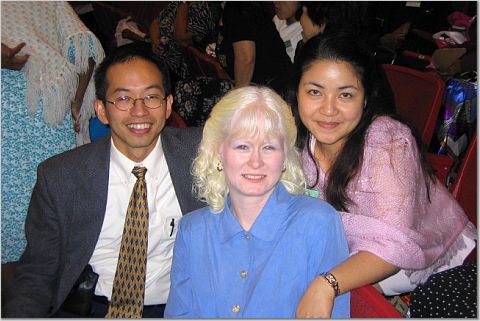Nya, nya, nya
Have you seen it yet? Oh boy. And you thought Indonesian was an easy language. It seems just when you’ve finally got a few useful words down pat, it happens.
That pesky little suffix known as –nya shows up, dangling off the back of a perfectly good word that you had begun to view as a trusted friend, only to obscure its once-familiar meaning and render the word virtually unpronounceable. (Is that even a word? See what happens when I get riled up!) What is this thing doing in the Indonesian language anyway? It sounds like it belongs somewhere in the outcast regions of Russia!
Okay, before I start a linguistic revolt here, let’s take a few minutes to see if this not-so-welcomed freeloader has any redeeming qualities. I suppose it may be helpful to remember that, like some people I know, a less-than-great first impression doesn’t mean you won’t eventually come to love its good qualities.
The suffix –nya has basically two functions when it is added alone to the end of a noun (person, place or thing).
Possession
You probably already know the possessive pronouns in Indonesian, such as dia (his / her) and mereka (their). Though the word order is reversed in Indonesian (object first, then who owns it), they are used to denote possession as in English, such as…
Where is her child?
Di mana anak dia? (lit. child her)
Their class has ended.
Kelas mereka sudah selesai. (lit. class their)
But you will commonly hear statements like these shortened, with the suffix –nya taking over the job of indicating possession, such as…
Di mana anaknya?
Kelasnya sudah selesai.
But there’s a twist. Not only is –nya a possessive little bugger, but it’s picky too! It can only be used to indicate possession when saying the equivalent of ‘his’, ‘hers’, ‘theirs’ or ‘its’ and never when saying the equivalent of ‘my’, ‘mine’, ‘yours’ or ‘our’. (Just remember, it doesn’t like you or me or anything that belongs to us!!)
As a Definite Article
In English, we use the word ‘the’ to indicate something specific. It is known as a definite article.
The suffix –nya can be used at times in the same way as the word ‘the’ when talking about a specific object, usually one that has already come to the attention of the listener earlier in the conversation. For example:
Aku mau beli mobil yang baru.
I want to buy a new car.
Kapan kamu mau beli mobilnya?
When do you want to buy the car?
So in a nutshell, -nya simply indicates possession or refers to a specific object already under discussion.
The only complaint remaining is the ridiculous sound –nya expects us to make when attempting to pronounce it. Admittedly, this is not an easy letter combination for a Western palate. But just think about your nagging boss, or maybe even your spouse, when you are yes-ing him and/or her to get off your back….nya, nya, nya.
With a little time and practice, this suffix might just not be such a nuisance after all. ;-)
Until next time…
Selamat belajar!
gabrielle
www.hello-indonesia.com
Everyday Indonesian - This is a good cut-to-the-chase, non-technical book for those who want to understand basic Indonesian grammar and start using it right away. It also has good information for understanding Indonesian people and their culture, not just the language. I refer to this book often and I think you will too.
Lonely Planet Indonesian Phrasebook - This is my absolute favorite phrasebook. There is a LOT of great information packed into this little pocket-size book; way more than just useful phrases. There are entertaining cultural tidbits, as well as invaluable tips sprinkled throughout in an easy-to-read style. The grammar section is also a great foundation for those who want to learn the language and attain fluency. Highly recommended.


<< Home